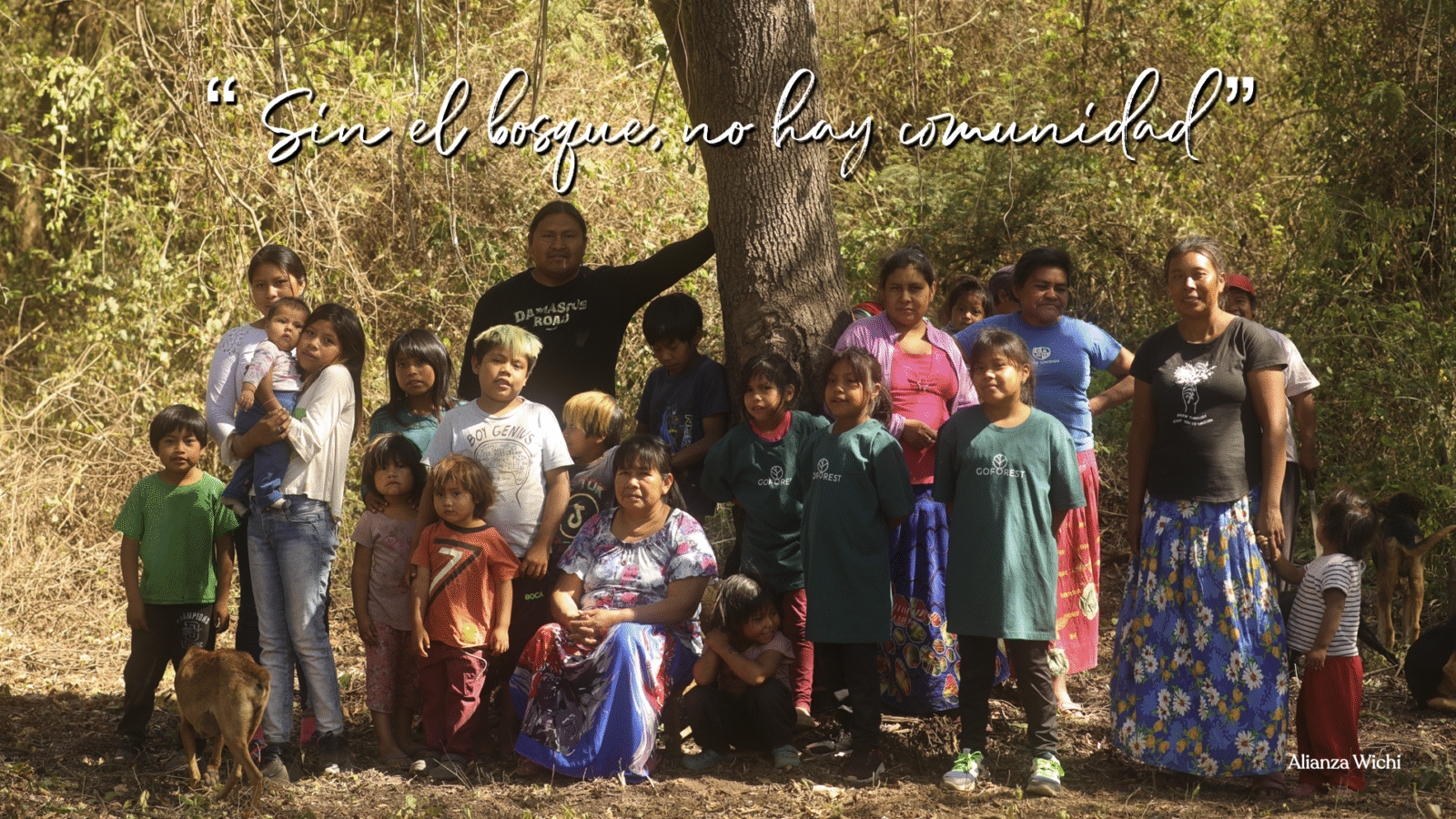The context is stark. Many communities face extreme poverty, under-representation, malnutrition and a widening humanitarian crisis, while extractive models continue to erode native forests and the cultural fabric that depends on them. In a country where “development” too often arrives at the expense of the Chaco and Yungas, we’re building practical alternatives that honour place, people and planet.
Here’s how we’re doing it—together, and on the ground:
Agroforestry with bio-intensive gardens and medicinal plants. We co-design productive agroforestry systems that combine fruit and native trees with diversified crops and herbal medicine beds. Families gain year-round nutrition, resilient incomes, shade, soil health and pollinator corridors—all while strengthening local knowledge.
Native tree nurseries in Weenhayek, Wichí, Chorote and Guaraní communities. With community nurseries we propagate thousands of high-value native species to reforest communal territories and enrich biodiversity. Seed by seed, we’re bringing back lapacho, guayacán, algarrobo, mistol, yuchán (palo borracho), cedro, quebracho and more—trees with deep ecological and cultural meaning.
Indigenous rights and environmental defence. Our legal team—specialists in Indigenous law—supports communities facing illegal logging, land grabs and eviction suits, roaming livestock that devastate crops, and aerial fumigations that harm health and biodiversity. Defence of rights underpins every food, forest and culture initiative we lead.
Basic infrastructure for dignity and productivity. We help install safe drinking-water systems, crop irrigation, essential tools and internet connectivity—practical infrastructure that makes learning, health and local enterprise possible.
Seed recovery and genetic diversity. Through regional seed exchanges we revive adapted, ecological varieties—rebuilding agro-biodiversity while safeguarding taste, nutrition and cultural memory.
Training and knowledge exchange. We run hands-on workshops where elders, women and youth teach and learn together: agroforestry design, nursery management, soil care, seed saving, plant medicine, sustainable crafts and more. Skills are shared; confidence grows.
Applied research rooted in biocultural knowledge. With scientists and community researchers, we adapt local wisdom and modern tools to improve outcomes—testing what works in Chaco realities and scaling only what communities choose.
Community-led economic development (thriving with culture and nature). Alongside regeneration, we are building fair, place-based economies:
- Chiwoye. Our community-centred design brand that uplifts Indigenous textile arts (llama, sheep and plant fibres like chaguar), ensures fair pricing and reinvests in nurseries, seed work and training. Chiwoye connects master weavers and young apprentices to international markets without losing cultural authorship.
- Bamboo for bio-construction. We’re establishing Guadua chacoensis in mosaic plantings integrated within native forest and agroforestry systems—never as monocultures. Bamboo provides rapid biomass, carbon storage and durable material for housing, shade structures and small industries, while diversifying incomes through a local value chain (nurseries → culm harvesting → processing → community builds).
- Cultural, educational and nature/biodiversity tourism. Carefully co-designed, small-scale experiences led by communities—forest walks, seed and weaving schools, birding routes, language and food heritage—create direct income for families and champions for the Chaco. Governance, FPIC and benefit-sharing are non-negotiable.
All of this forms a coherent strategy: to demonstrate that regenerative land-use is not only ecologically sound but also socially indispensable and economically viable. Forests feed families. Culture stewards forests. And when young people can learn, work and lead at home, communities stay whole.
Our next horizon is bold: a network of “Sanctuaries of Culture and Nature”—interconnected sites where Indigenous governance, forest regeneration and local economies reinforce each other. These sanctuaries will be open bridges to the wider world: places for training, research, responsible cultural exchange and long-term restoration.
We’re ready to partner across society. If you’re a company seeking credible insetting or nature-positive action, we can co-design reforestation that directly benefits local families: communities collect wild seed and run nurseries; together we plant the right trees in the right places, and monitor survival and impact. If you’re a foundation, university, public body or citizen donor, we can align your support with tangible projects—trees in the ground, gardens producing, water flowing, rights protected, knowledge alive, craft economies and bamboo bio-construction value chains growing.
What we need now is catalytic backing to expand what already works: more nurseries, more agroforestry, more legal defence, more seed diversity, more training, more basic infrastructure—and the economic engines (Chiwoye, bamboo, community-led tourism) that make regeneration stick.
I believe the Gran Chaco can be what it truly is: a living mosaic of cultures and forests—a paradise of nature and belonging. With the right alliances, we can turn today’s vulnerabilities into tomorrow’s resilience.
If this resonates with you or your organisation, let’s talk. Join us in planting forests and futures—together.
— Martin Kraft Founder, & Director of Alianza Wichi

